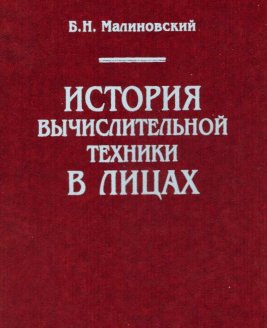Norbert Wiener: Invention: The Care and Feeding of Ideas (1993)
Filed under book | Tags: · engineering, history of science, history of technology, mathematics, science, technology

“Internationally honored for achievements throughout his career, author of Cybernetics, ExProdigy, and the essay God and Golem, Inc., which won the National Book Award in 1964, Norbert Wiener was no ordinary mathematician. With the ability to understand how things worked or might work at a very deep level, he linked his own mathematics to engineering and provided basic ideas for the design of all sorts of inventions, from radar to communications networks to computers to artificial limbs. Years after he died, the manuscript for this book was discovered among his papers. The world of science has changed greatly since Wiener’s day, and much of the change has been in the direction he warned against. Now published for the first time, this book can be read as a salutary corrective from the past and a chance to rethink the components of an environment that encourages inventiveness.
Wiener provides an insider’s understanding of the history of discovery and invention, emphasizing the historical circumstances that foster innovations and allow their application. His message is that truly original ideas cannot be produced on an assembly line, and that their consequences are often felt only at distant times and places. The intellectual and technological environment has to be right before the idea can blossom. The best course for society is to encourage the best minds to pursue the most interesting topics, and to reward them for the insights they produce. Wiener’s comments on the problem of secrecy and the importance of the “free-lance” scientist are particularly pertinent today.”
With an introduction by Steve Joshua Heims
Publisher MIT Press, 1993
ISBN 0262231670
185 pages
DJVU (updated 2012-8-1)
Comments (2)Boris N. Malinovsky: Pioneers of Soviet Computing (1995–) [RU, EN]
Filed under book | Tags: · computing, cybernetics, history of computing, history of science, history of technology, soviet union, technology

Boris N. Malinovsky’s Pioneers of Soviet Computing is the English language version of his earlier Russian language The History of Computing in Personalities (in Russian: История Вычислительной Техники в Лицах). Partly technical history and partly a memoir, it is the only existing first person account of the birth of modern computing in Russia, Ukraine, and Belarus. It chronicles the life and work of renowned Soviet computer scientists S.A. Lebedev, V.M. Glushkov, N.P. Brusentsov, I.S. Brook, and many others. It describes numerous indigenous and original Soviet computer hardware projects from the end of the Second World War through the decades that followed, interlaced with commentary on the Soviet political and social systems that constrained rapid and free technological advancement. In addition, this work reviews the various Russian and Ukrainian computing schools ranging from the highly philosophical cybernetics and artificial intelligence to the applied defense computing institutions supporting the military and weapons enterprises. The epic effort to mass produce the Unified System (ES) series of computers – based on the IBM 360 design – is described in depth, along with the political and bureaucratic intrigue and personal and technological struggles that accompanied.
Subjects: Soviet Union, USSR, Electronic Computing, Science, Defense, MESM, BESM, ES, Elbrus, Setun, Cybernetics, Control Computers, Ternary.
Publisher KIT, Kiev, 1995
ISBN 5770761318
384 pages
English edition
Edited by Anne Fitzpatrick
Translated by Emmanuel Aronie
Editorial consultant: Kate Maldonado
First published in 2006
Published electronically by SIGCIS, 2010
Creative Commons license BY-ND 3.0
Authors (via Internet Archive)
Publisher (EN)
via Aymeric Mansoux
Istroiya vychislitelnoy techniki v litsach (Russian, 1995, HTML, added on 2015-1-13)
, Pioneers of Soviet Computing (English, 2nd ed., 2006/2010)
Limina No. 1: Unidentified Narrative Objects – New Video Production and New Media Art (2010) [Italian/English]
Filed under journal | Tags: · internet, italy, media theory, new media, new media art, video, video art
This journal is the first of a series written by members of the Ph.D Planetary Collegium M-Node, and published by NABA Nuova Accademia di Belle Arti Milano. The series will be a collection of reflections and observations by the Ph.D researchers who are part of the programme, and by interpreters of the contemporary digital culture.
The Ph.D Planetary Collegium is an international network of research based on the rapport between art, design, philosophy, technology and science, which welcomes researchers from all over the world. It has been founded by Roy Ascott, a pioneer in telematic and cybernetics art, whose work has developed in the fields of arts, technologies and consciousness.
Questo volume inaugura una serie di testi di ricerca realizzati a cura del Programma dottorale Phd Planetary Collegium – M-Node ed editi dalla Nuova Accademia di Belle Arti di Milano. Una raccolta di riflessioni e di osservazioni realizzate dai ricercatori che partecipano al programma e da interpreti della cultura digitale contemporanea.
Editor: Francesco Monico
Scientific advisory committee: Francesco Monico, Derrick De Kerchkove , Antonio Caronia, Pier Luigi Capucci
Publisher M-Node, NABA Libri, Milan, May 2010
ISBN 978-88-95286-07-5
212 pages
PDF [Italian/English]
Comment (1)

